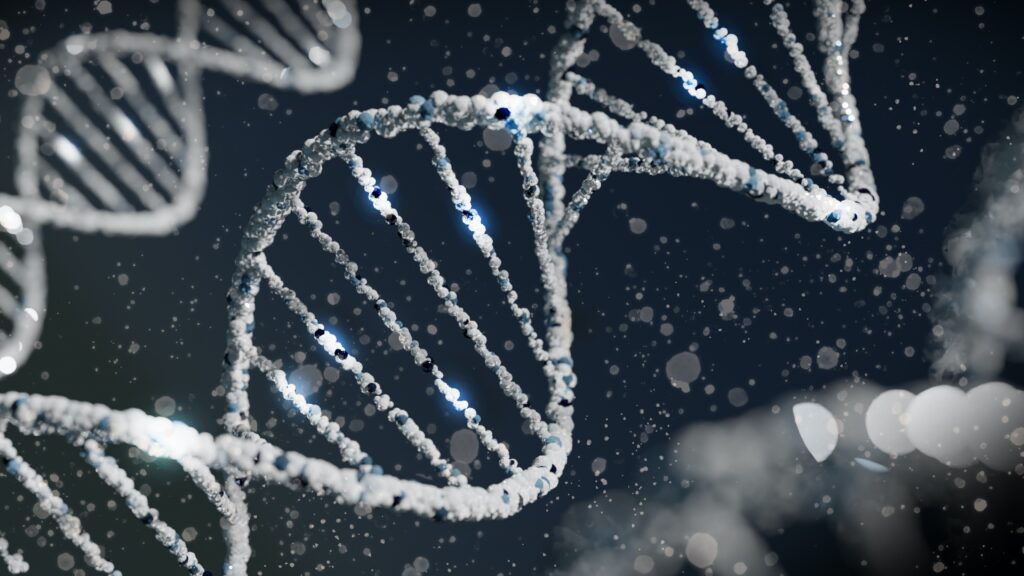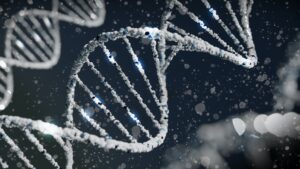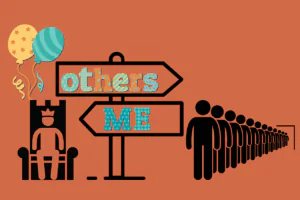Blog by Karen Kuhlman, LSW, CADC
“Once again, the body keeps score, at the deepest levels of the organism.” (Bessel Van der Kolk in The Body Keeps the Score, p. 154)
Sometimes clients have asked me, “Can trauma be passed down genetically?” Research has made it increasingly clear that trauma from your hardships not only affects you, but can also impact the lives of your children, their children, and the generations that follow. This intergenerational (or transgenerational) trauma shapes who we are on an individual and a collective level. The field of study about this type of “passed down” genetic trauma is called epigenetics.
According to the Centers for Disease Control (CDC), epigenetics, the study of how “behaviors and environment can cause changes that affect the way your genes work” doesn’t change your DNA (genetic code). Rather, it changes how your DNA markers respond to stimuli from behaviors and the environment. In other words, these markers don’t cause a genetic mutation to our DNA. However,they change the algorithms by which a gene is expressed. So, these changes are not genetic modifications, but rather epigenetic modifications.
Behaviors such as abuse, addiction, and violence in families can cause trauma. In addition, environmental factors such as malnutrition, housing displacement, and natural disasters can also cause trauma. Your body can store that trauma on an epigenetic level over the course of several decades. Science journalist Donna Jackson Nakazawa, author of Childhood Disrupted: How Your Biography Becomes Your Biology and How You Can Heal, describes this epigenetic trauma as a “damage cascade.”
Authors Larry Brendtro and Martin Mitchell in their book Deep Brain Learning: Pathways to Potential with Challenging Youth describe how this damage cascade is established.
Being reared in a safe and supportive environment activates genes to build resilient brain pathways. But when safety and growth needs of children are not met, the brain is redesigned for defensive survival reactions…By nature, children have resilient brains and flourish in supportive environments. But if exposed to experiences outside of the expected range, epigenetic development goes awry and causes a host of problems. (2013, p.6).
The impact of epigenetics on so many lives is why one of the core principles in my work is helping clients understand the critical importance of healing trauma. Whether it’s trauma from events (here’s to you, Covid) or occurrences in your childhood, I don’t want it to continue to impact you (or your children!) over your lifetime (and theirs).
Epigenetics of Trauma in Human Beings
Epigenetics gained wide support in the scientific community over a decade ago from a study of the offspring of women who were pregnant during the Dutch Hunger Winter. A Nazi blockade of food shipments into the Netherlands over the winter of 1944-1945 caused this World War II era famine.
These pregnant women suffered nutritional deficiencies and stress that appeared to turn off a certain gene in the DNA of the children they carried during the famine. This silencing of the gene negatively impacted their offspring. It did so by causing widespread obesity, diabetes, and cardiovascular disease in this cohort at significantly rates higher than in their siblings born before or after the famine. The research also found that these same offspring had an increased propensity for developing schizophrenia. All of these children apparently carried a specific marker on one of their genes – what has come to be called an epigenetic effect.
In another epigenetics example in humans. Dr. Rachel Yehuda, director of the Traumatic Stress Studies Division at the Icahn School of Medicine at Mount Sinai in New York City, found in a 2015 study that Holocaust survivors and their descendants had epigenetic changes to a gene linked to the stress hormone, cortisol. The research indicated that a reduced level of cortisol was shown to be passed down to Holocaust survivor’s children, impacting the ability of these children to manage stress over their lifetime.
Related Reading: How to Deal with Unresolved Grief
As I read the synopses of these studies, I couldn’t help but think about the extreme levels of stress caused by the Covid pandemic over the last several years. Could the stress associated with the pandemic lead to epigenetic changes in children born during this time of societal upheaval? These studies suggest it may be possible.
Healing Trauma Can Change Your Epigenetics
The good news is that many epigenetic changes are reversible. “Some epigenetic changes can be added or removed in response to changes in behavior and environment.” In other words, alterations to your epigenetics can occur in response to changes you make in how you respond to and process trauma.
While healing trauma starts on an individual level, epigenetic research would say it can make a significant difference to future generations. Stabilized, safe, and supportive environments are ports in a storm if you were raised in a stressful environment where your survival depended on being constantly in a state of hypervigilance. Talk therapy, body-based therapy, group therapy, and supportive communities can help you calm your nervous system. In turn, this helps to form new neural pathways in your brain that support increased capacity for resilience and acceptance.
A large part of the trauma healing process is learning how to regulate your nervous system. Somatic therapies such Somatic Experiencing, bodywork, dance movement therapy, and yoga, as well as some cognitive therapies can help with this. Dr. Brian Dias, an Emory University researcher on this the epigenetics of trauma, states that while the field of epigenetics is still very young, therapies such as Dialectical Behavioral Therapy (DBT) and Cognitive Behavioral Therapy (CBT) can possibly reverse the effects of these epigenetic markers.
If you have trauma that has been passed down, there is much hope. Life Care Wellness specializes in the treatment of trauma. Our therapists are trained in well-researched, trauma-specific therapies such as Eye Movement Desensitization and Reprocessing (EMDR) and Somatic Experiencing (SE). We also offer Rapid Resolution Therapy, Mindfulness, and Yoga Therapies. Please reach out to us in our Northern Illinois locations in Glen Ellyn, Chicago (Jefferson Park), Sycamore, or Yorkville.
Karen Kuhlman is a licensed therapist and addiction specialist at Life Care Wellness. She specializes in substance use, process addictions (eating disorders, shopping, gambling etc.), DBT, and nutritional therapies. Karen also works with couples and uses Internal Family Systems therapy in her work. She firmly believes that the greatest challenges in our lives are also our greatest opportunities for growth and healing.







